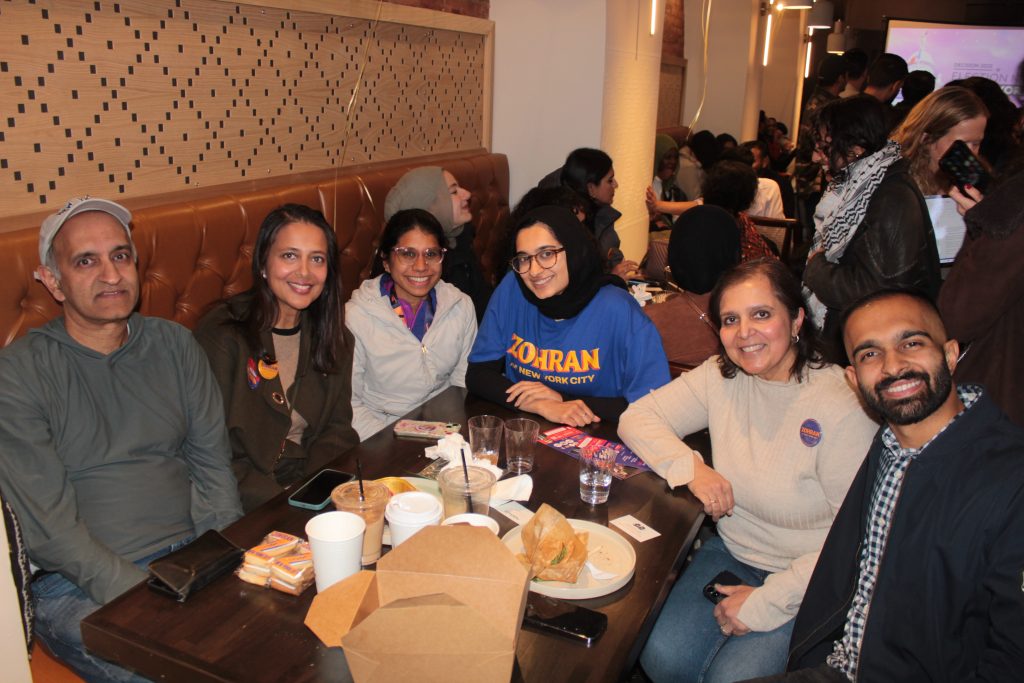
From Queens Cafes to Brooklyn Streets, NYC Celebrates Historic Victory
MOHAMED FARGHALY
mfarghaly@queensledger.com
The sound came first, a single cheer that turned into a roar. Then came the tears, the chants, the raised flashlights of hundreds of cellphones at a Queens coffee shop where disbelief turned to jubilation. On Election Night, Astoria native and Assemblyman Zohran Mamdani had just made history, becoming New York City’s first Muslim mayor.
The 34-year-old democratic socialist defeated former Governor Andrew Cuomo and Republican nominee Curtis Sliwa in a race that shattered political expectations and drew more than two million voters — the city’s highest turnout in a mayoral race since 1969.
“New Yorkers are hungry for a different kind of politics, a politics that doesn’t require translation,” Mamdani said months ago during a roundtable with the Queens Ledger. “Ultimately, I want to use every breath I have in every single day of the campaign to talk about how I’m going to make the city more affordable.”
On Tuesday night, that vision became a mandate.
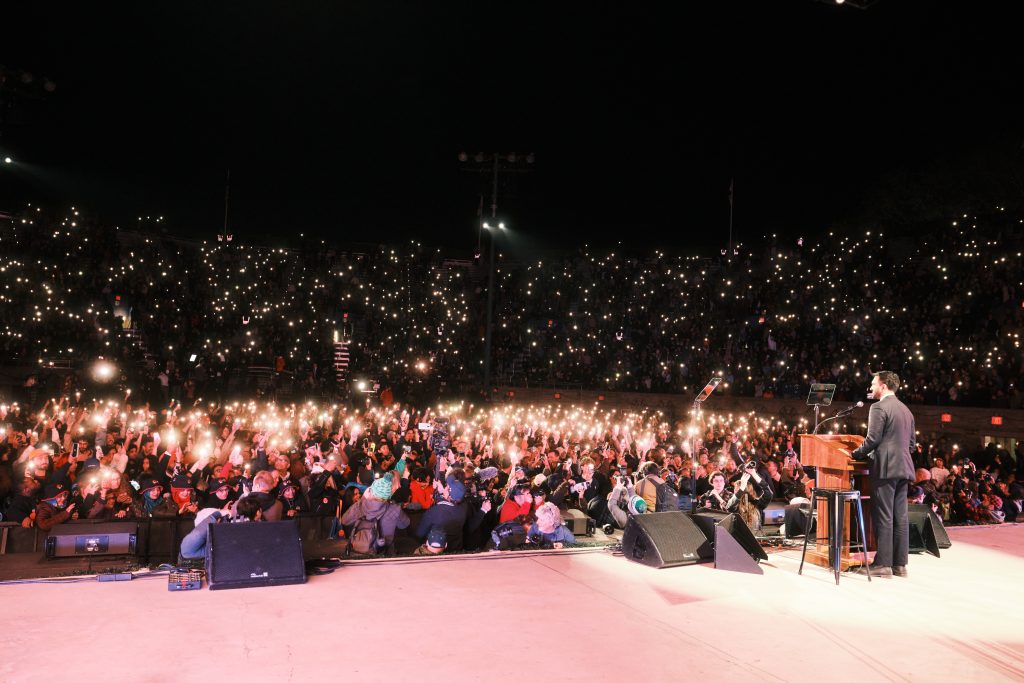
A Grassroots Wave
Zohran Mamdani’s mayoral campaign began late last year with the young, little-known assemblyman knocking on doors, creating viral videos about the rising cost of halal food carts, and even visiting our Queens Ledger office in Woodside to share his vision for the city while polling at just 3 percent. From those humble beginnings, Mamdani’s rise was improbable — a first-term assemblyman who built his campaign from the ground up, moving door to door, from mosque to synagogue, subway stop to rally stage, carrying a message of affordability and inclusion that soon resonated across boroughs.
His campaign promised to freeze rents for nearly two million tenants, make buses fast and free, and provide universal childcare to all families from six weeks to five years old. “The future is in our hands,” Mamdani told a cheering crowd after his victory was called. “My friends, we have toppled a political dynasty.”
Cuomo, backed by President Donald Trump in a rare bipartisan twist, had sought a political comeback three years after resigning from office amid sexual harassment allegations, which he denied. He campaigned on restoring public safety and order, often invoking fear and instability. But his attempt to frame Mamdani’s Muslim and immigrant identity as a liability backfired, fueling a coalition of voters who saw the attack as emblematic of the politics they wanted to leave behind.
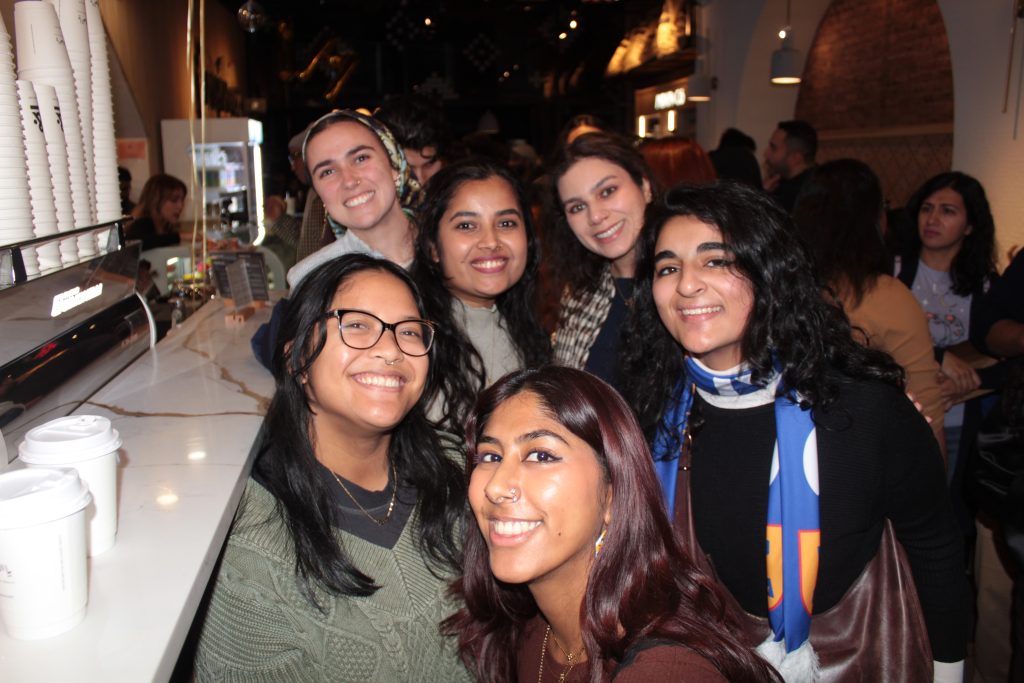
Astoria Erupts
At Moka & Co., a Yemeni coffee shop along Steinway Street, hundreds gathered for an Election Night watch party hosted by the Muslim Democratic Club of New York. The crowd, young and old, speaking English, Bangla, and Arabic, erupted when the race was called just after 9:30 p.m.
Passing cars honked. Uncles outside hookah bars leaned into the street, phones outstretched to film the moment. Hijabi girls wearing keffiyehs ran to join the crowd and get on top of cars as chants of “Mamdani!” and “Free Palestine!” filled the air.
It was a scene both local and global, a Queens neighborhood celebrating one of its own, Astoria’s very own Assemblymember and a city witnessing a generational shift in power.

“On 1 January, I will be sworn in as the mayor of New York City. And that is because of you. So before I say anything else, I must say this: thank you. Thank you to the next generation of New Yorkers who refuse to accept that the promise of a better future was a relic of the past.You showed that when politics speaks to you without condescension, we can usher in a new era of leadership. We will fight for you, because we are you. Or, as we say on Steinway, ana minkum wa alaikum,” Mamdani said, opening his victory speech at the Brooklyn Paramount later that night. “Thank you to those so often forgotten by the politics of our city, who made this movement their own. I speak of Yemeni bodega owners and Mexican abuelas. Senegalese taxi drivers and Uzbek nurses. Trinidadian line cooks and Ethiopian aunties. Yes, aunties.”
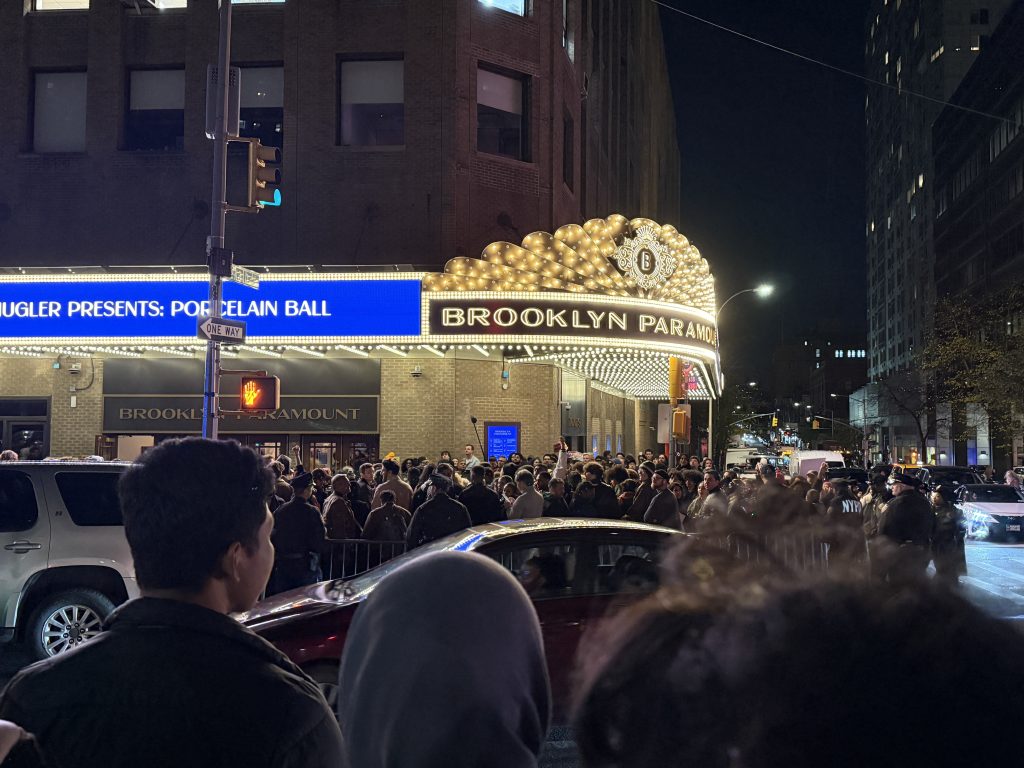
Brooklyn Lights Up
At Canal Bar in Gowanus, the line to get in was more of a cloud, pressing up against the limits of the sidewalk. As the percentages wavered after 9 p.m., briefly suggesting a strong showing for Cuomo, the patrons inside — a heavily pro-Mamdani crowd — chatted nervously. But when the race was called not long after, the narrow space burst into cheers. An older man jostled his way through with a paper cutout of the mayor-elect, and drinks flowed all around.
An even larger mass of people stood behind the metal barriers outside the Brooklyn Paramount in Downtown, where Mamdani was set to deliver his victory speech. A smaller group perched on the pedestrian island across the street, cheering back at cab drivers who honked in support as they drove by.
Both clumps listened on phones, shoulder to shoulder, as the Astoria rep laid out his vision for the city. An hour passed; then another. Hasan Piker walked through the scrum. Former Mayor Bill de Blasio emerged with his son. Next came a gaggle of lawmakers that included Congressman Adriano Espaillat, who originally endorsed Cuomo but reconsidered after the primary. A speaker blared and an impromptu dance battle broke out. Members of the anti-Zionist Satmar sect of Judaism waved signs celebrating AIPAC’s failure to unseat the campaign.
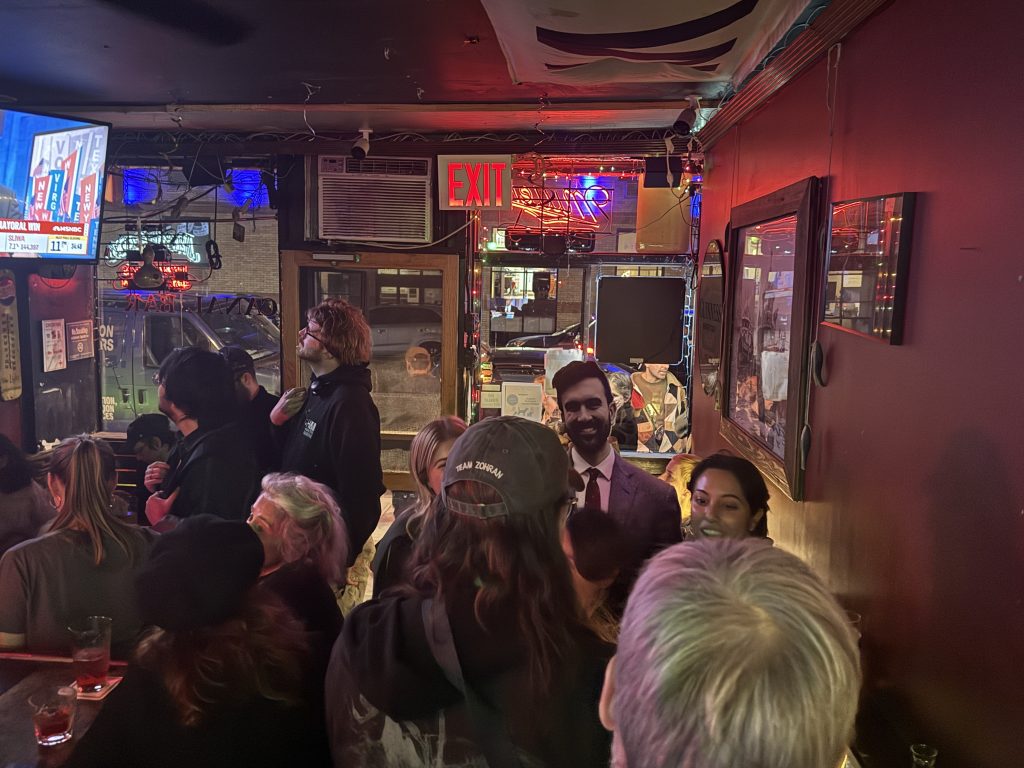
Ridgewood Roars
At a watch party hosted by the New York Groove at Ridgewood’s TV Eye, bartenders served up a seemingly endless flow of Tecates and PBRs, in addition to drink specials like the “Rent Freeze” (frozen coquito), the “Red Beret” (frozen spicy mango margarita), and of course, “A City We Can Afford” (PBR and a shot).
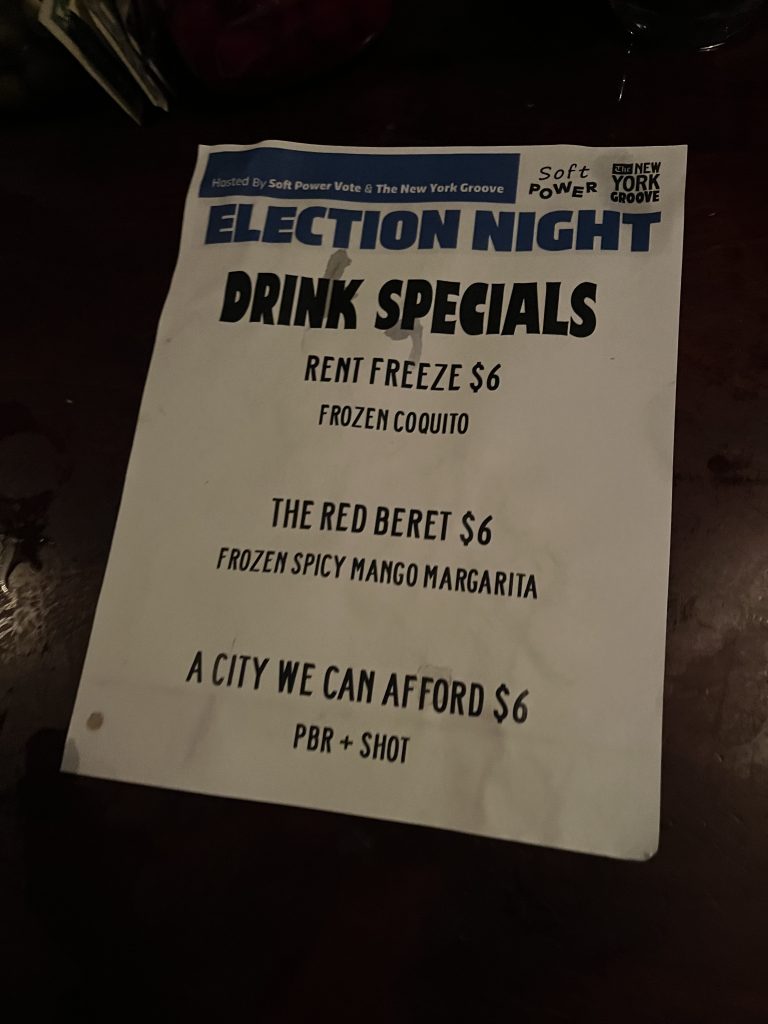
The attendees were largely in their late-20s and early thirties. Many sported beards and donned shirts emblazoned with the blooming rose emblem of the Democratic Socialists of America, to which Mamdani belongs. Others wore orange and blue Mamdani beanies, the iconic “Hot Girls for Zohran” or jerseys with M-A-M-D-A-N-I 25 on the back. Canvassing stories were swapped and new friends were made. A sense of collective responsibility for Mamdani’s success swept the room, not so dissimilar from watching a friend or family member from the bleachers as a gold medal is draped around their neck. Inside, what is usually TV Eye’s dance floor hung a large projector broadcasting live election coverage from Max Rivlin-Nadler and Katie Way of Hell Gate, a Brooklyn independent news outlet. But the real party, however, was outside on the patio, where attendees huddled around their friends’ phones for updates, swapping cigarettes and laughs. At one point, a group decided to pin up an iPhone showing live results to the patio’s back wall. As it grew clearer Mamdani would win the race, the chatter erupted into cheers. People hugged, and pretty soon the whole bar broke into an either hopeful or ominous chant, depending on your perspective:
“Tax the rich! Tax the rich!” they shouted.
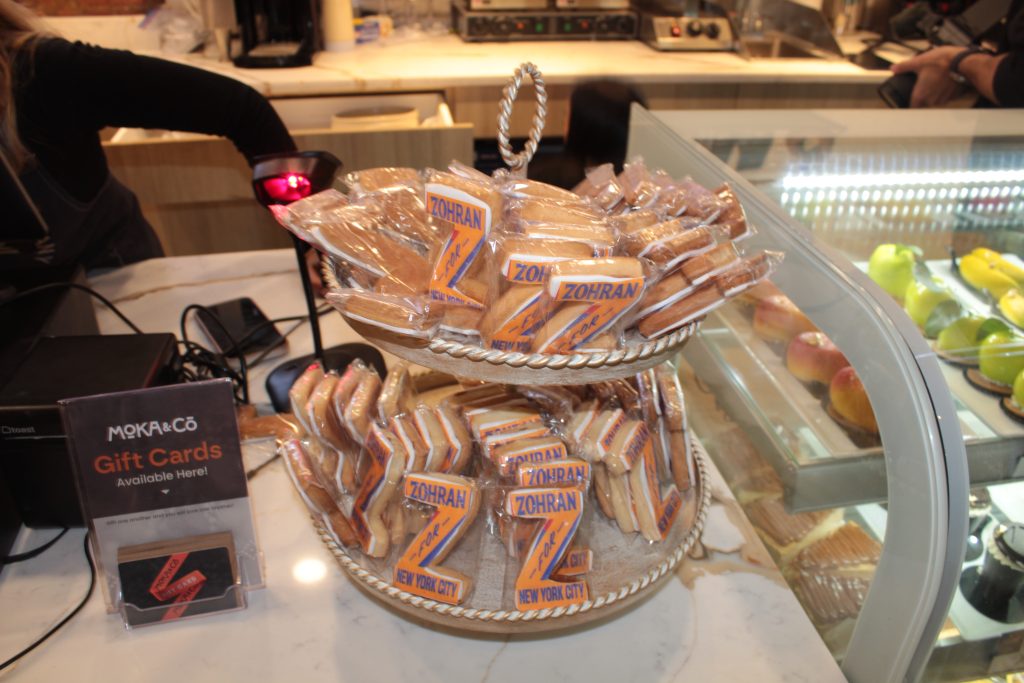
A New Era for New York
Mamdani’s victory sent ripples far beyond the five boroughs, signaling a changing Democratic Party and a rebuke to its centrist establishment. The race, closely watched nationwide, was viewed as a proxy battle between progressive Democrats and the pro-Israel, old-guard wing of the party.
He is set to take office on January 1, 2026, inheriting a city still grappling with housing costs, transit woes, and deep divisions over policing and foreign policy. But for now, his supporters see only possibility.
“Most of all, it will be felt by each New Yorker when the city they love finally loves them back. Together, New York, we’re going to freeze the rent together, New York, we’re going to make buses fast and free together, New York, we’re going to deliver universal childcare. Let the words we’ve spoken together, the dreams we’ve dreamt together, become the agenda we deliver together. New York, this power, it’s yours. This city belongs to you.” Mamdani said, closing out his victory speech.
Jack Delaney and Cole Sinanian Contributed to this article.
